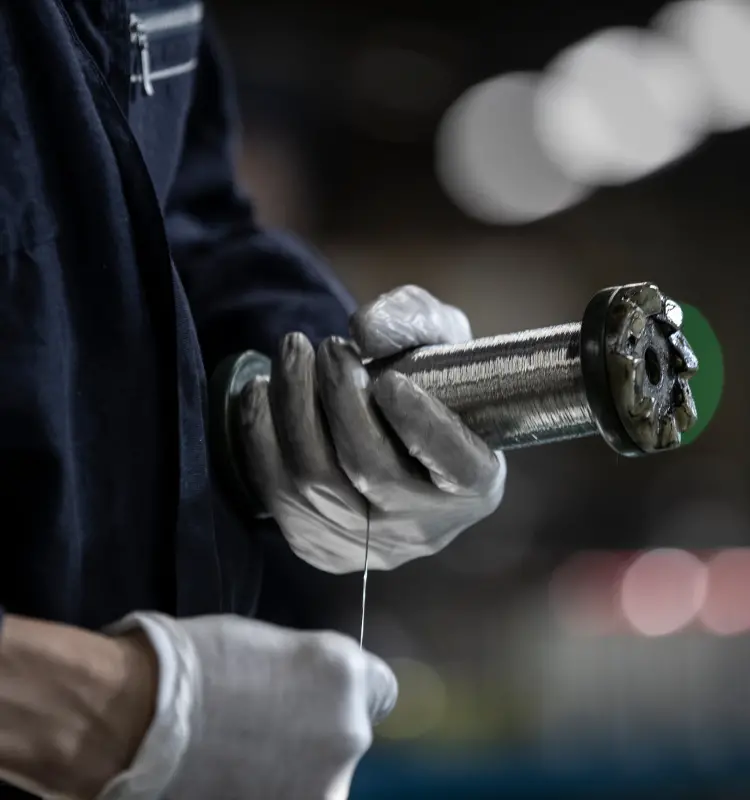
Characteristics of the Products
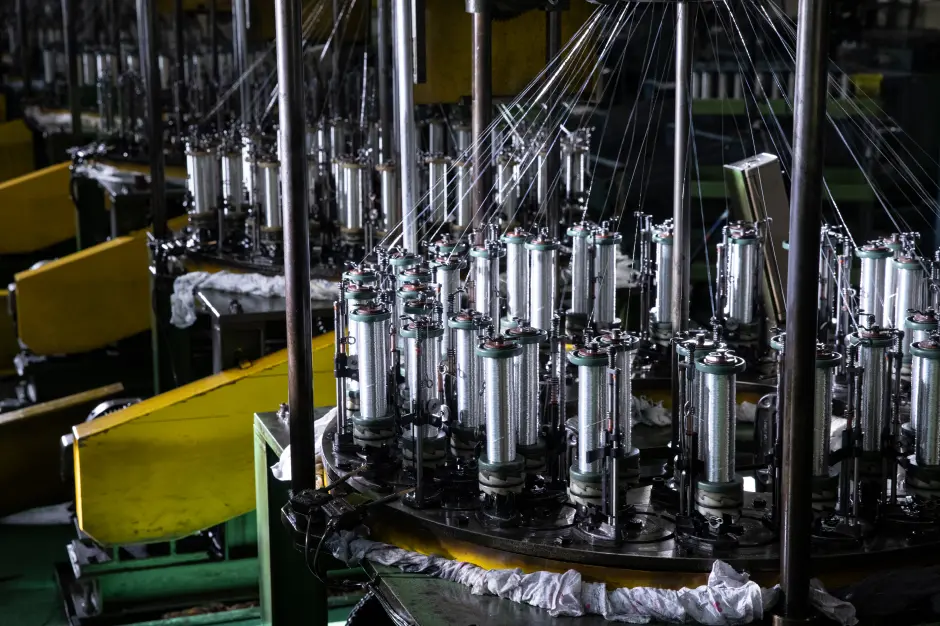
High flexibility
Our flat braided copper wire is highly flexible, making it easy to guide the wire. It is therefore highly suited for connections to the moving parts of devices. It also absorbs device vibration and helps prevent connection terminals from coming loose.
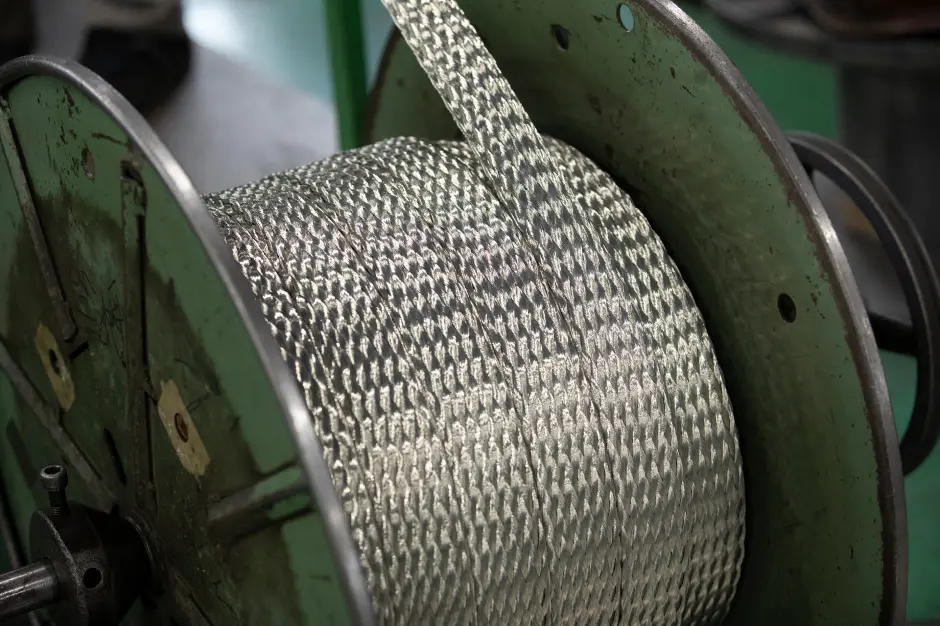
Safe conduction of large electrical currents
Flat-braided copper wire has a larger cross-section than stranded wire, so it also has a larger heat dissipation surface area. That's why it excels at dissipating heat.
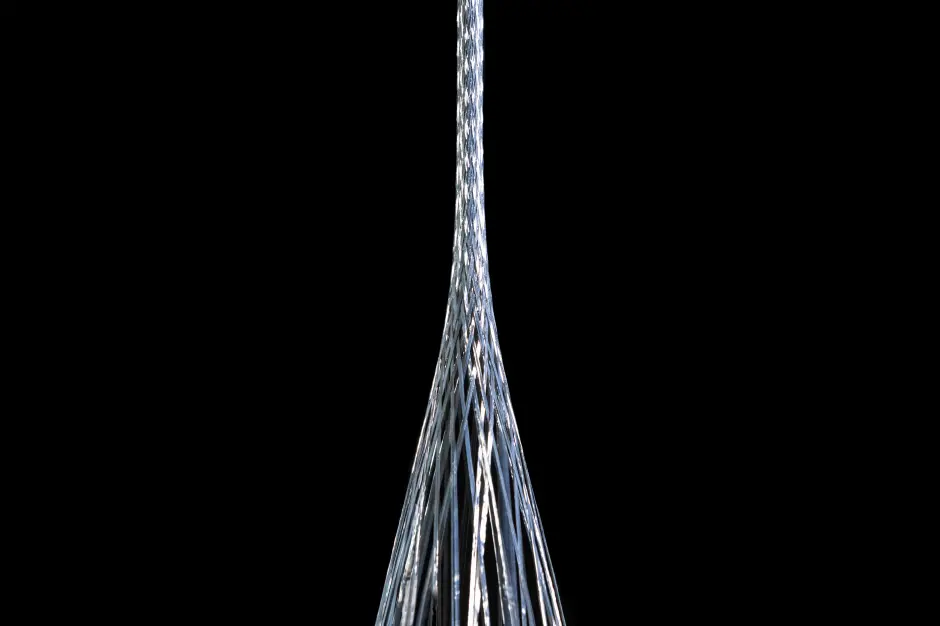
Hollow core
The braided wire has a hollow core and can stretch, so lead wires and cables can be passed through the center after the wire is processed.
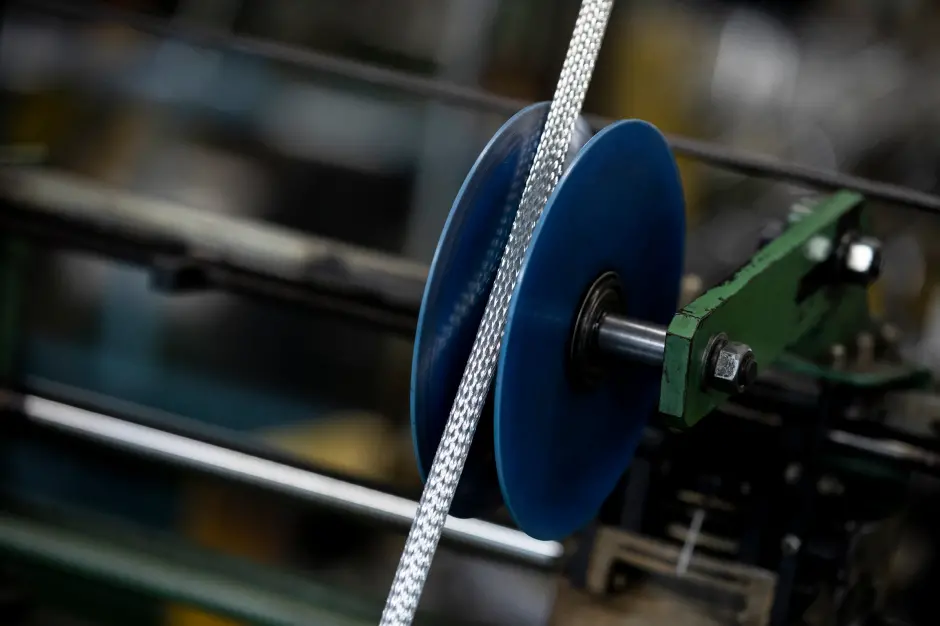
Effective space utilization
Braided wire can be used in overlapping layers when high capacity is needed, reducing the amount of space required for installation.
Product details
- Uses
- Structure
- Type/Specifications
- Manufacturing range
Below are just a few of the places where our braided cables are used.
- Electric vehicles and hybrid vehicles
- Trains
- Passenger aircraft
- Large factory power lines

Structure
Soft copper wire, tin-clad soft copper wire, and other wire are bundled and braided together to create circular, hollow braided wire or flat molded braided wire.
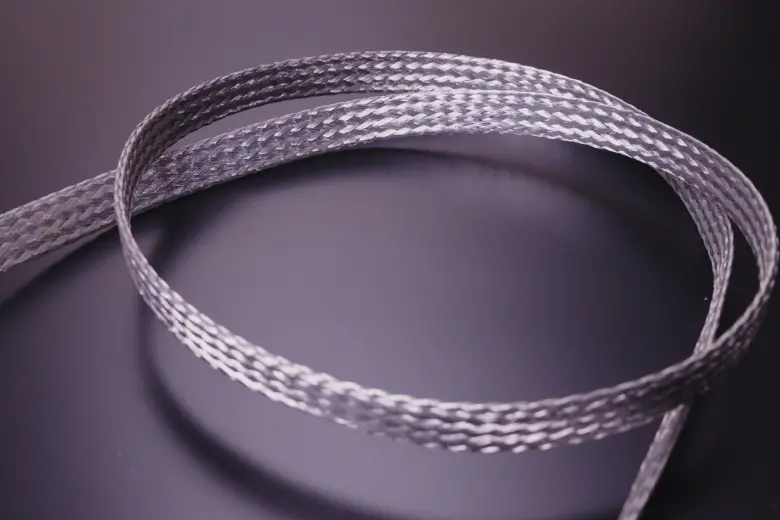
Type
| Type | Symbol | Wire material |
|---|---|---|
| Flat braided copper wire | BC | Soft copper wire |
| Flat tin-clad copper wire | TBC | Tin-clad soft copper wire |
Specifications
Our wire is conformant with JCS (Japanese Cable Makers' Association Standard) 1236:2001. We apply our own in-house standard to wires not covered by JCS 1236:2001.
We use wires such as aluminum wires, oxygen-free copper wires (OFCs), and nickel-clad soft copper wires.
Manufacturing range
| Wire diameter 0.05mm | Wire diameter 0.08mm | Wire diameter 0.10mm | |||
|---|---|---|---|---|---|
| Nominal cross-section area <mm2> |
Total number of wires | Nominal cross-section area <mm2> |
Total number of wires | Nominal cross-section area <mm2> |
Total number of wires |
| 0.125 - 60 | 64 - 30,800 | 0.5 - 60 | 64 - 11,968 | 0.5 - 100 | 64 - 12,716 |
| Wire diameter 0.12mm | Wire diameter 0.18mm | Wire diameter 0.26mm | |||
|---|---|---|---|---|---|
| Nominal cross-section area <mm2> |
Total number of wires | Nominal cross-section area <mm2> |
Total number of wires | Nominal cross-section area <mm2> |
Total number of wires |
| 0.5 - 250 | 48 - 22,132 | 2.0 - 300 | 72 - 11,792 | 3.8 - 300 | 72 - 5,544 |
